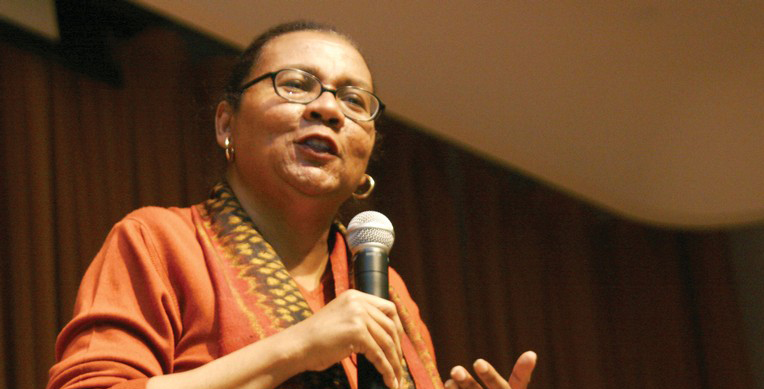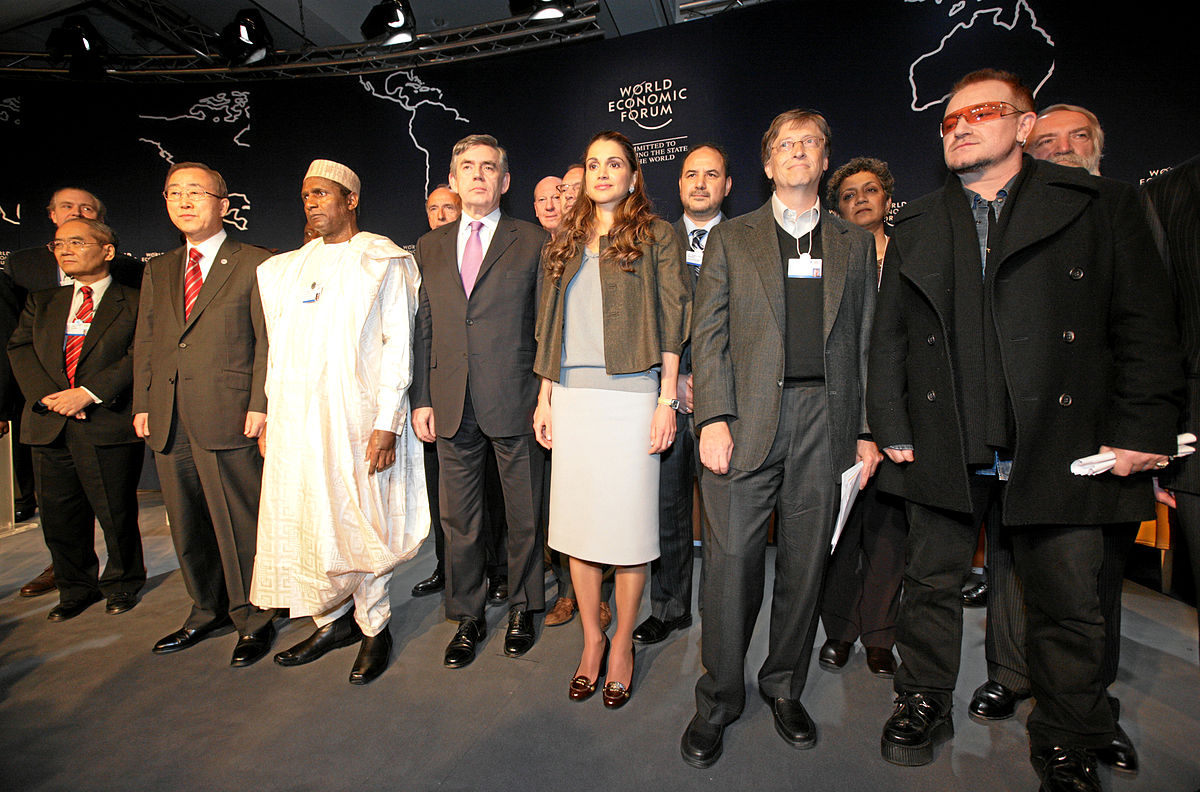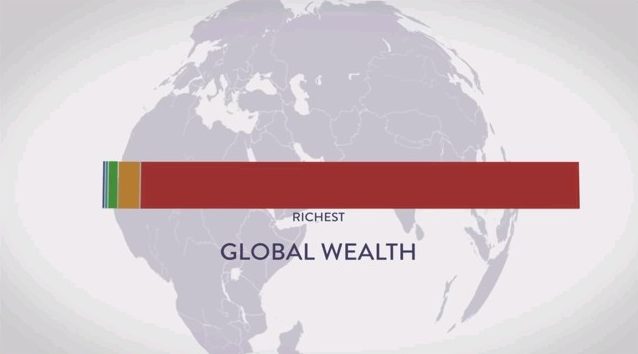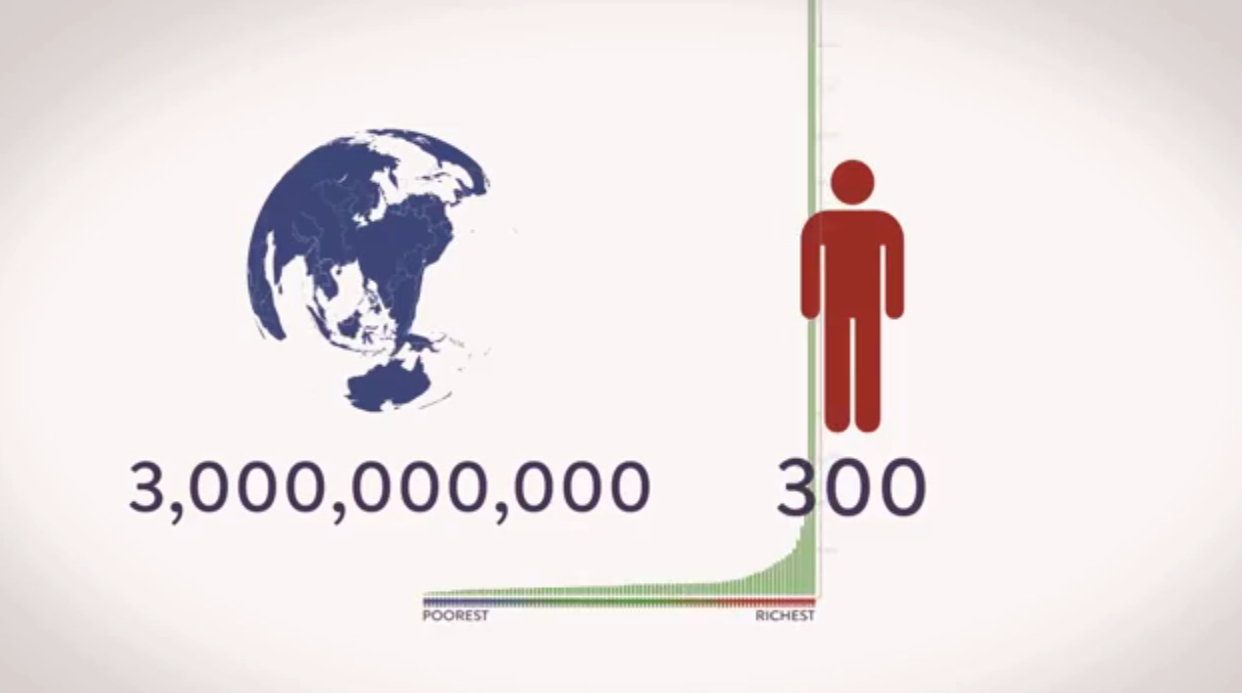
The black blogosphere’s outrage over bell hooks calling Beyoncé a terrorist is reminiscent of the outrage over Cornel West’s critique of President Obama. In both instances, contemporary black intellectuals have taken to the interwebs to express their utter disgust and have deemed West and hooks outdated. What is at stake in the younger generation’s critique is not simply a question of age, but rather is fundamentally a question of ideology. The vast majority of intellectuals of our time are proponents of the neoliberal project – privatization, individualism, and a full on acceptance of capitalist logic. Race, sexuality and gender are critical aspects of their work, yet there an outright refusal to say neoliberalism and capitalism are bad. Neoliberal capitalism feeds on discrimination and alienation. The system is not broken. It is ontologically flawed and working just fine. Contemporary black intellectuals strive for a non-sexist, non-homo and -trans-phobic, and non-racist seat at the table versus a construction of a new table. While breaking the back of various discriminations is crucial, it is insufficient in the face of global capital’s incorporation of historically othered persons who aspire to neoliberalism into the imperial project. To this end, individuals who have made it to the table are to be celebrated because they have achieved the Lacanian nightmare – masked as the American dream.
Respecting our Elders
These elders – hooks and West, who have been faithful in our struggle to our people – risking life and limb – are subject to a criticism by a younger generation of intellectuals who have yet to live under death threat. And none of us have written definitive text. West and hooks in their 20s published ground-breaking discourse-shifting tomes. Prophesy Deliverance and Ain’t I a Woman are two of the most important books written by black intellectuals in the late 20th century. These books broke with neoliberal logic and offered a radical reading of black life in the American empire. They guided and shaped generations of intellectuals to come. Their dialogue and book, Breaking Bread, offered a rare glimpse into the life of the mind of a black man and woman struggling together against the empire. bell hooks named white patriarchal capitalism – a linguistic intervention signifying the zeitgeist of hegemony.
Prior to the age of Obama, hooks and West were the very definition of what it meant to be a black public intellectual – radical intellectuals who held out for liberation for race, class, gender, and to a lesser degree, sexuality at once and who had an abiding love for black people. It seems the case that – as Eddie S. Glaude has argued – “The gravity of black intellectual life has shifted.” It is not to make an essentialist claim about blackness, but rather to acknowledge there has been an de-emphasis on collective struggle and hyper emphasis on individual access and attainment couched in postmodern lingua franca that is vacated of any systematic analysis of neoliberal logic. All of which is buttressed by a disdain for the past – a deeply American sensibility.
Novel But Not Radical
Novel critiques and epistemic skepticism have replaced the radical mode of being that has shaped much of black intellectual life in the United States and abroad. Intersectionality is not insurrection – defending thin counter-hegemonic practices is not the same as a full-on assault on the systems that circumscribe these practices. To be sure, the individual success of Obama and Beyoncé has offered a hopeful facsimile to those toiling on the night side of democracy. Even though their realities beg to differ, like all Americans, black people are seduced by the Horatio Alger narrative of meritocratic individualism. Obama and Beyoncé present possibilities of black progress. Their success presses the black poor to reproduce their Herculean rise. Obama and Beyoncé have both benefited from the black freedom struggle – yet have never made the kinds of political sacrifices that hooks and West have made. While West and hooks’ harsh wording might have been tempered with a nuanced nomenclature, their observations remain true.
President Barack Obama is the blackface of the American empire, a black mascot for Wall Street. Extrajudicial killings, expansion of the security state, drone strikes, black boot-strap speeches, expanded military operations in the Middle East and Africa, and Obama’s cozy relationship with Walmart and Wall Street titans affirm West’s observation. And Beyoncé’s relationship to Sheryl Sandberg’s feminism ignores the economic depravation facilitated by corporate elites and affirms Sandberg’s position that the best way to defeat sexism is to not fight it, but to “lean in” to patriarchy and become better at it than men – “Boss.” For Sandberg and Beyoncé, being a CEO in life is a laudable aspiration. Neoliberal logic does not allow them and their intellectual defenders to think about the ways in which corporations are mediators of oppression. Such a frame does not dismiss the power of Beyoncé’s transgressive sexual politics in popular culture or her business savvy; it accentuates the limits of neoliberalism and highlights its capacity to absorb othered bodies into its own logic. In reference to Beyoncé’s appearance on the cover of Time, bell hooks notes, “Let’s take the image of this super rich, very powerful black female and let’s use it in the service of imperialist, white supremacist capitalist patriarchy because she probably had very little control over that cover – that image.” Beyoncé is a most powerful woman in the entertainment industry; her individual success has not “trickled down” into the life chances of the black poor. The emphasis on individual achievement inside morally bankrupt systems is nothing less than terrorizing.
The Master’s House is Burning
While the presence of Beyoncé and Obama in the public discourse has generated some positive images and racist and sexist backlash to boot, their mode of being helps to sustain the white patriarchal capitalist system. The gravity of black intellectual life that West and hooks subscribe to privileges a sustained critique of the entire system.
Unlike hooks and West, Obama, Beyoncé, and most younger black intellectuals believe that the system is a good system that only needs to provide greater access to the historically othered. Thus there is a rush to defend the black embodiments of neoliberalism – Obama and Beyoncé. The radical black feminist and womanist tradition sheds light on the racist and sexist formulations inside and outside the black community and keeps its eye on the system writ large. However, the neoliberal disposition directs its fever-pitched critique at the blatant racist and sexist actions of individuals while it is unable to articulate the ways in which Beyoncé and Obama undermine the very possibility of anti-neoliberal discourse.
Again, the dominant intellectual disposition of contemporary black intellectuals is neoliberal. Their anti-racist, anti-sexist, anti-transphobic and anti-homophobic sentiments are easily incorporated into the neoliberal project without critiquing neoliberalism. As Audré Lourde so eloquently wrote – a now often-quoted refrain – “The Master’s Tools Will Never Dismantle the Master’s House.” Neoliberalism is the master’s house and tool. It limits discursive space, subjugates radicality and seduces the othered into defending its existence.
Nevertheless, economic and ecological catastrophe abound. In order to vacate the premises, contemporary black intellectuals must shed the aspirational politics of individual success and situate ourselves in the broader tradition of black radical thought – never mistaking individual success with collective progress; thin opposition for revolutionary struggle; acknowledging clearly that white patriarchal capitalism and its neoliberal expression is amoral and unstable. The American empire is burning. We need firefighters – not cheerleaders. We must dream new dreams – a world without CEOs and empires. We are all at some level complicit in that system. West and hooks have given their lives in service to dismantling it. And for that we must be all grateful.









I remember going to a carnival, circus or zoo and would see Elephants tethered to a post in the ground. The post was maybe no more than 2 feet above the ground and about the same below.
Back home Elephants pull down trees with little effort.
It is urgent that All Humans embrace history as a possibility. (Freire, 1970).Why? Perhaps it is because the urgency of the historical moment demands the necessity of politics and a public pedagogy that makes knowledge meaningful which is critical and transformative in its praxis. (Giroux, H., A., 2014b).
In other words, “Those who influence the past do so, because they influence the present and those who influence the present are positioned to control and influence the future”(Orwell, 1948). The mentality and influence of the few allows History to appear to repeat itself by consistently benefitting a few to the disadvantage of most Humans. The result is that the same things are being done the same way, with the mistaken expectations of attaining different results.
This influence which typically has been the domain of a few can now to be accomplished by All Humans who consciously and courageously participate in activities that result in meaningful knowledge that transforms the Humans condition and Humans themselves both individually and collectively.
We owe it to ourselves to exercise collaborative Critical Thinking Pedagogy that politically encourages and involves the full participation of, by and for all Humans. Critical Thinking Pedagogy questions the oppressive strategies of “bait and switch” tactics. Today unlike the past, All Humans can succeed, by constructing an active democracy comprised of interactive democracies that support life, liberty and the pursuit of happiness for All Humans.
We are connected to all Humans who have existed or will ever exist anywhere at anytime. We require unlimited intellectual growth to meet the demands of unlimited energy and information which is the real wealth of the world, so that all Humans can efficiently profit and live in peaceful prosperity.
Research indicates that implementing critical thinking pedagogy strategies enhances the quality of independent thinking within the individual, the quality of interdependent interactions among individuals, and the collectives formed from those individuals.
Human beings as praxis, truly transform reality and are the source of knowledge and creation through reflection and action, (Freire, 1970). If just a few Humans can influence reality that benefits a few at the expense of the many, then the participation of All Humans through the application of Critical Pedagogy would yield results that are a entirely beneficial for all Human development.
Critical Pedagogy requires critical thinking and critical dialogue based on empathy. In short, thinking, discussion and considerate actions are the components of Critical Pedagogy. This is effectively Humanization.
ii. The Urgency of Humanization is necessary: because Pedagogies have become dangerous at all levels of schooling, they unsettle common sense, make power accountable, and connect classroom knowledge to larger civic issues, (Giroux, H., A., 2014b). In short, to dispel myths that manipulate through misdirection, pedagogies question the validity of everything related to sources, processes and information. It ask “the How and Why,” of problems to arrive at solutions.
Critical Pedagogy is the praxis of self correction and self direction which restores Humanization for all by eliminating oppression. It prevents us from being the manifestation of the corruption and injustices we claim to oppose. It eliminates our fear of freedom. We are only imprisoned by the cages we refuse to see.
Pedagogies examine issues related to questions as (Fuller, N., 1984) insist, regarding “justice vs. mistreatment in the areas of economics, education, entertainment, labor, law, politics, religion, sex, and war”.
In short, pedagogies question the validity of everything related to sources, processes and information. It poses questions and clarifies solutions to problems. It dispels myths that maliciously manipulate through mischievous misdirection.
Fuller, N., (1984), insists that maturity is the practice of self correction and self direction. It questions privilege and power, while it prevents the oppressed from being oppressors and the manifestations of the corruption and injustices they claim to oppose. Gilroy (2006) points out “the relationships of ignorance to power have seldom been considered systematically.” Critical Pedagogy frees us from ignorance and the fear of freedom.
For example, in the 1980’s of a boy named William Fiquerora was bullied into misspelling the word “potato” by a Government official. This was a violation of Fiquerora’s First Amendment Right to the Freedom of Speech. The event was trivialized by journalists. The journalists and Government officials failed to protect Mr. Fiqurora’s First Amendment Right of the Freedom of Speech.
The purpose of Freedom of the Press is to safeguard the Freedom of Speech. Journalists failed to perform their duty and were remiss in their responsibility to critically examine the disregard of Mr. Fiquerora’s First Amendment Right and ultimately their Right, Freedom of Press.
Abuse was further exacerbated because neither the teachers in that room nor the adult citizens defended of the Freedom of Speech or protected the child who happened to be right. That young man and his family suffered many hardships connected to the incident which included government insistence that they remained silent on matter or suffer repercussions. Silence is golden and all that glitters is not gold.
I humbly submit, that if the nation’s citizens would have engaged in critical thinking pedagogy, the present citizens would have benefited, because it would have raised the level and quality of consciousness regarding Human Rights by protecting the Bill of Rights, and a person’s Right of Free Speech. Most importantly they would have set the proper example by protecting a child, thus promoting higher expectations of the quality of adult maturity.
Instead were they co-conspirators in the process of an agreed pretense that trivialized these rights which they claim are important enough to risk life and limb? Was Mr. Fiquerora, was abandoned by the nation’s government officials, teachers, journalists, and the adult citizens? Is it mature to live by agreed pretense?
True pretenses hinder us and are not constructively transformative. Meaningless knowledge is nonsense. The future of Human progress hinges on the protection of Human Rights, not on the misspelling of a word.
Since the occurrence of the event, how have these pretenses improved the behavior of government officials, journalist, teachers and citizens? Is it mature for Adult citizens to not protect the rights of a child and not hold themselves accountable? Are these the actions of brave adults or cowards who hide behind cliché while surrendering their own rights?
The predictable outcomes from the citizens not being self-correcting are now the current reality. The maturity of citizens, determine the type of government they deserve.
What kind of transformation is in the future of a nation, whose adult citizens will not examine the issues or critique their own civic and personal behavior? How does this behavior translate into current domestic and foreign policies and worthiness of alleged global democratic leadership?
The rights of Adult citizens are at risk when they fear their freedom of being mature. Why would adults fear defending the Right of Free Speech, when it is a matter of established fact? Does 2+2 = 5? The Right of Free Speech is important and especially important when one is RIGHT!
Silence is golden, but duct tape is silver. Growing old is necessary, Growing up is optional.
Mature discussion from mature thinking results in the direction of solutions available that form appropriate mature actions.
Critical dialog circumvents infantile perceptions of serious issues through mature analysis.
By talking maturely about controversial issues in the public sphere and in all types of learning institutions, problems are clarified so that appropriate solutions can be exercised.
Mature critical discussion of controversial issues among adults with other adults and with children is constructively transformative, because improves their interactions as well as their abilities to clarify and solve problems. It prevents Humans from as (Fuller, 1984) states “being silly about that which is serious and serious about that which is silly.”
The oppressors are Humans just as the oppressed. The oppressed must be “restorers of humanity for both,” (Freire, 1970, p.44).
Mature self-control maintains that interactive self- government is established for the benefit of the individual, and is charged with the responsibility of protecting the rights every individual’s freedom.